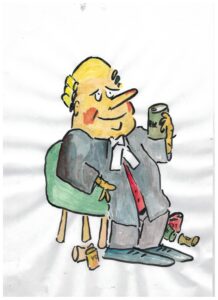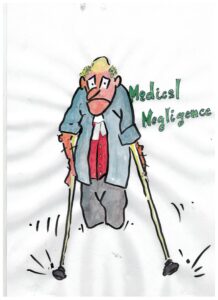Trustee’s duties
- 2015-08-25
- By whiggs
- Posted in Trustees, Trusts & Trustee Law
Trustees duties:
(1) it owes its members a duty to act in the members’ best interests: see Cowan v Scargill [1984] 2 All ER 750 at 760 per Sir Robert Megarry VC:
“The starting point is the duty of trustees to exercise their powers in the best interests of the present and future beneficiaries of the trust, holding the scales impartially between the different classes of beneficiaries. This duty of the trustees towards their beneficiaries is paramount. They must, of course, obey the law; but subject to that, they must put the interests of their beneficiaries first. When the purpose of the trust is to provide financial benefits for the beneficiaries, as is usually the case, the best interest of the beneficiaries are normally their best financial interests.”
(2) it owes a duty to act impartially, excluding from consideration matters which are irrelevant and giving proper consideration to matters which are relevant: see Edge v Pensioners Ombudsman [1999] EWCA Civ 2013; [1999] 4 All ER 546 at 567.
(3) it owes members of the Fund a duty to exercise reasonable care, and it has been said that this duty will be discharged if it “takes in managing trust affairs all those precautions which an ordinary prudent man of business would take in managing similar affairs of his own”: Speight v Gaunt (1883) 9 App Cas 1 at 19 per Lord Blackburn, adopted in Austin v Austin  [1906] HCA 5
[1906] HCA 5  ;
;  (1906) 3 CLR 516
(1906) 3 CLR 516  at 525, see also Elder’s Trustee and Executor Company Limited v Higgins [1963] HCA 48; (1962) 113 CLR 426 at 448; “a trustee is not a surety, nor is he an insurer”: see In re Chapman [1896] 2 Ch 763 at 775 per Lindley LJ.
at 525, see also Elder’s Trustee and Executor Company Limited v Higgins [1963] HCA 48; (1962) 113 CLR 426 at 448; “a trustee is not a surety, nor is he an insurer”: see In re Chapman [1896] 2 Ch 763 at 775 per Lindley LJ.
(4) it must act honestly and in good faith: see J D Heydon and M J Leeming, Jacobs’ Law of Trusts in Australia (7th ed, 2006), LexisNexis Butterworths, Sydney (“Jacobs”) at [1608] and the cases there cited.
(5) it must take an informed view of whether or not to exercise its discretion and not act irresponsibly, capriciously or wantonly: see Jacobs supra;
(6) it must exercise its power with due consideration for the purpose for which the power was conferred and not some ulterior purpose: see Jacobs supra.
From Manglicmot v Commonwealth Bank Officers Superannuation Corporation [2010] NSWSC 363
SEARCH BLOG POSTS
LATEST BLOG POSTS
- Updated product safety mandatory reporting guidance for suppliers now available
- Pleading fraud – cause and effect is essential
- Does the Trustee’s right of indemnity have priority over the right of beneficiaries in relation to assets?
- Rules of war (in a nutshell) | The Laws Of War
- MH370 Final Report
Past Blog Posts
- December 2021
- September 2021
- August 2021
- May 2021
- April 2021
- March 2021
- August 2020
- February 2020
- September 2019
- February 2019
- December 2018
- July 2018
- April 2018
- December 2017
- May 2017
- February 2017
- December 2016
- November 2016
- October 2016
- September 2016
- August 2016
- April 2016
- March 2016
- October 2015
- September 2015
- August 2015
- May 2014
- April 2014
- March 2014
- January 2014
Categories
- Appeals
- Artificial Intelligence
- Aviation law
- Banking and Finance Law
- Blogs
- Civil Liability Act
- Class Actions
- Coding for lawyers
- common law
- Consumer Claims (TPA)
- Contract Law
- Contractual Interpretation
- Criminal law
- Deeds
- Docassemble
- duty of care
- Engineering Law
- Equity
- Evidence
- Exclusion Clauses
- Execution of documents
- Expert Witness
- featured
- Financial Services
- Fraud
- Fundraising (Chapter 6D)
- General comment
- Home Building Law
- Insurance
- Legal drafting
- Local Court
- Medical Negligence
- MH370
- Motor Accidents
- Negligence
- Occupiers negligence
- Other
- Personal Injury
- Personal Property Securities (PPSA)
- Pleading
- Practice & Procedure
- Products Liability
- Property
- Real Property
- Reasons for a decision
- Securitisation
- Security (Mortgages & Charges)
- Sentencing
- Swaps & Derivatives
- Teaching
- Transactional Law
- Transfer of financial assets in transactions
- Trusts & Trustee Law
- Uncategorized
- War and Weaponry
- Witnesses
SEARCH BLOG POSTS
LATEST BLOG POSTS
- Updated product safety mandatory reporting guidance for suppliers now available
- Pleading fraud – cause and effect is essential
- Does the Trustee’s right of indemnity have priority over the right of beneficiaries in relation to assets?
- Rules of war (in a nutshell) | The Laws Of War
- MH370 Final Report
Past Blog Posts
- December 2021
- September 2021
- August 2021
- May 2021
- April 2021
- March 2021
- August 2020
- February 2020
- September 2019
- February 2019
- December 2018
- July 2018
- April 2018
- December 2017
- May 2017
- February 2017
- December 2016
- November 2016
- October 2016
- September 2016
- August 2016
- April 2016
- March 2016
- October 2015
- September 2015
- August 2015
- May 2014
- April 2014
- March 2014
- January 2014
Categories
- Appeals
- Artificial Intelligence
- Aviation law
- Banking and Finance Law
- Blogs
- Civil Liability Act
- Class Actions
- Coding for lawyers
- common law
- Consumer Claims (TPA)
- Contract Law
- Contractual Interpretation
- Criminal law
- Deeds
- Docassemble
- duty of care
- Engineering Law
- Equity
- Evidence
- Exclusion Clauses
- Execution of documents
- Expert Witness
- featured
- Financial Services
- Fraud
- Fundraising (Chapter 6D)
- General comment
- Home Building Law
- Insurance
- Legal drafting
- Local Court
- Medical Negligence
- MH370
- Motor Accidents
- Negligence
- Occupiers negligence
- Other
- Personal Injury
- Personal Property Securities (PPSA)
- Pleading
- Practice & Procedure
- Products Liability
- Property
- Real Property
- Reasons for a decision
- Securitisation
- Security (Mortgages & Charges)
- Sentencing
- Swaps & Derivatives
- Teaching
- Transactional Law
- Transfer of financial assets in transactions
- Trusts & Trustee Law
- Uncategorized
- War and Weaponry
- Witnesses




